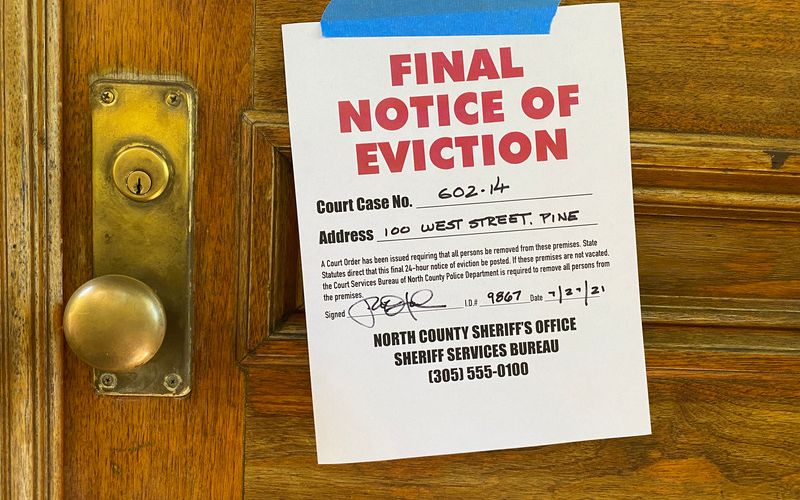Last Updated on March 18, 2024 by Kelvin Nielsen
Are you looking to learn about Connecticut lease termination laws? If so, this blog has you covered! Here’s everything you need to know regarding the topic!
Under Connecticut law (Connecticut General Statutes Title 47A), a rental agreement can be established in either of three ways. That is, through a written document, a verbal agreement, or if you accept a payment as rent.
Now, there are two types of rental agreements that you can establish with the tenant. The agreement can either be a lease or a rental agreement. A lease is a long-term agreement that usually runs anywhere from 6 to 12 months. A rental- or a periodic agreement, on the other hand, is a short-term agreement that typically runs month-to-month.
With that in mind, here’s everything you need to know about Connecticut lease termination laws.
What are Connecticut Lease Termination Laws?
The law to apply will depend on whether the agreement you have with your tenant is a lease- or a periodic agreement.
How to Terminate a Lease Agreement in Connecticut
According to the state’s lease termination laws, a landlord can only terminate a lease agreement by carrying out a ‘just cause’ eviction. In other words, you cannot evict a tenant for any reason; you must have a legitimate reason for eviction.
The following are common reasons for tenant eviction in Connecticut.
- Failure by a tenant to pay rent.
- Failure by a tenant to move out of their rental unit at the end of their lease.
- Lease violation, such as keeping an unauthorized pet or causing negligent property damage.
- Engaging in illegal activity.
If a tenant has committed any of these violations, you’d be able to terminate their lease by serving them a proper notice. For instance, to terminate a lease for nonpayment of rent, you’d need to serve the tenant with a 3-Day Notice to Quit. This would give the tenant only 3 days to either pay the due rent or leave. If the tenant doesn’t leave, you’d have the option to pursue a court solution by filing a lawsuit.
Please note that you cannot try to evict a tenant in any other way, such as removing their personal belongings from the unit, locking them out, or shutting down their utilities. Any of these actions would constitute “constructive eviction” and that would be illegal under CT laws.
How to Terminate a Periodic Lease Agreement in Connecticut
Here, either party to the lease has a right to do it. To do so, either party can serve the other a written notice of their intention not to renew the agreement for another term.
Now, a periodic lease agreement can either be a week-to-week, month-to-month, quarter-to-quarter, or even year-to-year. The required notice period will depend on the type of periodic tenancy.
The following is a table summarizing the notice requirements for terminating a periodic tenancy.
| Type of Periodic Tenancy | Notice Requirements |
| Week-to-Week | 7 days’ notice |
| Month-to-Month | 30 days’ notice |
| Quarter-to-Quarter | No statute |
| Year-to-Year | No statute |
You must serve the notice to the tenant either in person or by mail. If you send it by mail, make sure to request a return receipt.
For the notice to be effective, make sure to mention the following things.
- Tenant’s name and address
- Landlord’s name and address
- The rental property’s address
- Date of effective lease termination
- Landlord’s signature
Next, after the tenant vacates the unit, make sure to return the deposit (or whatever portion remains) within 21 days of them moving out.
Conclusion
There you have it, everything you need to know when it comes to Connecticut lease termination laws. If you have a specific question, please don’t forget to leave a comment below.
Disclosure: The content herein isn’t a substitute for advice from a professional attorney. It’s only meant to serve educational purposes. If you have a specific question, kindly seek expert attorney services.
Sources: Connecticut General Statutes Title 47A, Connecticut Eviction Laws, Connecticut Judicial Branch,

Amanda Rose is a seasoned landlord with 13+ years of expertise in overseeing diverse properties. Her adept management spans single and family homes, along with multi-family apartments and condos, across Wyoming and South Dakota. Her commitment and proficiency have cemented her status as a thriving property management professional.
She is a member of the following organizations: Wyoming Landlord’s Association, National Association of Residential Property Managers (NARPM), Wyoming Apartment Association, South Dakota Multi-Housing Association (SDMHA), and South Dakota Landlord Association (SDLA).







